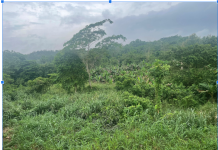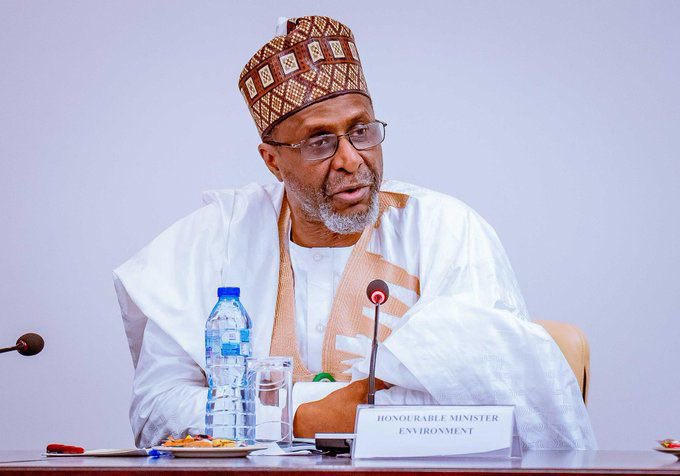The Nigerian government is taking a major step towards safeguarding the environment by actively pursuing the creation of a dedicated tribunal to hold accountable those who engage in environmental crimes throughout the country. This important initiative was revealed by Balarabe Lawal, the Minister of Environment, during a meeting with stakeholders in Abuja on June 5th, in commemoration of World Environment Day. The focus of this year’s celebration is centred around “Land Restoration, Desertification, and Drought Resilience.”
Minister Lawal voiced his apprehension regarding the widespread unsustainable environmental practices in the nation, linking these problems to deficiencies in the implementation of current environmental regulations. He highlighted that the emissions of greenhouse gases from factories and household appliances play a crucial role in the climate change difficulties that Nigeria is presently encountering.
Lawal stated that at present, due to our lack of strictness, it has become evident that environmental cases are not being handled appropriately. Our team is putting in significant efforts, and shortly, the Attorney-General of the Federation (AGF) will introduce legislation to safeguard our environment, forests, and local surroundings from pollution.
The primary objective of the proposed tribunal is to accelerate the legal proceedings for environmental crimes, guaranteeing prompt justice for the offenders. This endeavour is anticipated to discourage any future transgressions and foster more stringent compliance with environmental legislation.
“We are going to establish a tribunal that will try environmental crime very quickly, so we need AGF’s support. I urge stakeholders to help us in enforcing existing environmental laws as we try to improve on the laws protecting our environment,” Lawal emphasized.
Nigeria, similar to numerous regions across the globe, is currently facing a range of environmental obstacles, such as deforestation, unsustainable land practices, and the wider consequences of climate change. These practices not only pose a threat to the health and welfare of the population but also endanger the progress and endurance of the ecosystem.
To address these challenges, Nigeria has recently entered into a bilateral framework agreement with Cameroon, focusing on transboundary ecosystem conservation and the sustainable management of forestry and wildlife resources. Lawal hailed this agreement as a significant achievement in the preservation of biodiversity.
The Minister called upon stakeholders and the Nigerian population to reaffirm their commitment to environmental stewardship. He particularly emphasized the importance of planting trees as a tangible solution to combat land degradation and deforestation.
Lawal emphasized the importance of planting trees around our homes as a crucial solution to combat land degradation and deforestation. He stressed the need for intensified tree-planting efforts and called on agencies and departments to assist the ministry in this initiative. Lawal also highlighted the urgent need to declare a forest cover emergency, emphasizing the severity of the situation and the necessity for immediate and drastic action.
Mahmud Kambari, the Permanent Secretary of the Ministry of Environment, emphasized the importance of working together and cooperating to address the intricate challenges of environmental degradation. He called upon all stakeholders to utilize the potential of innovation, technology, science, and traditional wisdom to create effective solutions that will revive the country’s land, strengthen its ability to withstand drought, and combat desertification.
“Let us not forget the profound connection between environmental sustainability and human well-being. The health of our ecosystems directly impacts the livelihoods of millions of Nigerians who depend on land for food, water, and shelter. By prioritizing the conservation of the environment, we not only protect our natural heritage but also promote socio-economic prosperity and resilience for all,” Kambari stated.
Creating an environmental crimes tribunal marks a crucial milestone in strengthening Nigeria’s dedication to ecological sustainability. Through bridging the enforcement deficiencies in current laws and promoting a cooperative strategy to safeguard the environment, the government strives to protect the nation’s natural resources and secure a healthier, more sustainable future for every Nigerian.























